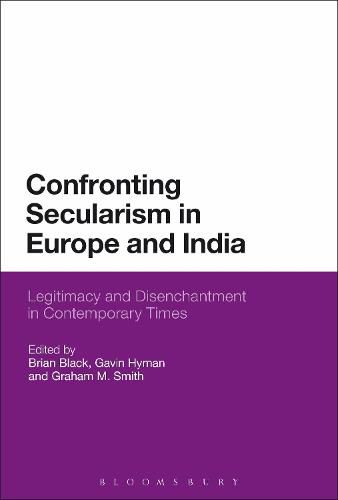Readings Newsletter
Become a Readings Member to make your shopping experience even easier.
Sign in or sign up for free!
You’re not far away from qualifying for FREE standard shipping within Australia
You’ve qualified for FREE standard shipping within Australia
The cart is loading…






Can secularism continue to provide a foundation for political legitimacy? It is often claimed that one of the cultural achievements of the West has been its establishment of secular democracy, wherein religious belief is respected but confined to the sphere of private belief. In more recent times, however, political secularism has been increasingly called into question. Religious believers, in numerous traditions, have protested against the distortion and confinement that secularism imposes on their faith. Others have become uneasily aware of the way in which secularism no longer commands universal assent in the way it once did.
Confronting Secularism in Europe and India adds to this debate by staging a creative encounter between European and Indian conceptions of secularism with a view to continuing new and distinctive trajectories of thought about the place and role of secularism in contemporary times. Looking at political secularism, the relationship between secularism and religion, and religious and secular violence, this book considers whether there are viable alternatives to secularism in Europe and in India.
$9.00 standard shipping within Australia
FREE standard shipping within Australia for orders over $100.00
Express & International shipping calculated at checkout
Can secularism continue to provide a foundation for political legitimacy? It is often claimed that one of the cultural achievements of the West has been its establishment of secular democracy, wherein religious belief is respected but confined to the sphere of private belief. In more recent times, however, political secularism has been increasingly called into question. Religious believers, in numerous traditions, have protested against the distortion and confinement that secularism imposes on their faith. Others have become uneasily aware of the way in which secularism no longer commands universal assent in the way it once did.
Confronting Secularism in Europe and India adds to this debate by staging a creative encounter between European and Indian conceptions of secularism with a view to continuing new and distinctive trajectories of thought about the place and role of secularism in contemporary times. Looking at political secularism, the relationship between secularism and religion, and religious and secular violence, this book considers whether there are viable alternatives to secularism in Europe and in India.